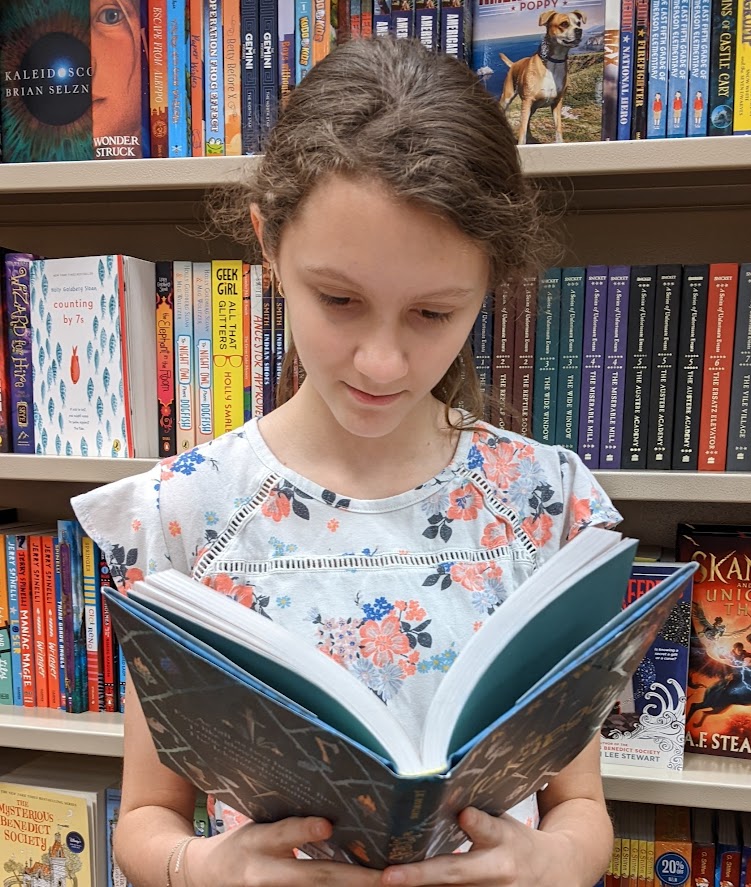Orphans are possibly one of the most overused tropes in fiction. There are probably hundreds, maybe thousands, of fictional children without parents because the author didn’t want to add extra characters. And, as a writer, I totally get it! Parents are just easier to push out of the picture so the child protagonist can do their thing. Without parents in the way worrying over their children’s safety, your protagonist can be free to complete death-defying stunts without interruption. But then, the protagonist becomes cliche, uninteresting to your reader, and doesn’t even face the issue that comes with being an orphan.
But, what if I told you that there was a way to keep those parents in the story, stay away from cliches, but also let the protagonist have their crazy adventures?
The task may seem difficult, impossible even, but there is a way.
And it’s much easier than you’d think.
Today’s Example:
Secrets of Sulphur Springs is one of those hidden gems you delight upon finding. Many live-action Disney channel shows that I’ve seen are either cheesy sit-coms or horribly written fantasies (or both!). This show has not only succeeded by having good writing, excellent side characters, and nail-biting suspense, it also did the ‘impossible’. They included parents.
There are a few different clever ways the writers of this show accomplished such a feat, so I’ll be using the three main parent characters to show you three ways you can include parents in your story.
Mr. Campbell (Ben)
The series starts with Mr. Campbell moving his entire family into a hotel which is supposedly haunted by a girl who died there a few years back. His son, Griffin, hates every idea of the new hotel business. As the first episode progresses, you find out that (seemingly out of the blue) Mr. Campbell quit his job, bought the hotel and uprooted his whole family from Chicago. To Griffin, it seems as if his dad just forced him to leave all of his old friends behind for no reason.
However, as the season progresses, you discover that as a kid, Mr. Campbell was actually good friends with the girl who died. In fact, he blames himself for her death. So when he heard that the hotel was being sold, he took it as a chance to redeem himself and honor her spirit.
Though it takes a while for Mr. Campbell’s secret to be revealed, his character is completely understandable and even loveable once you discover what he’s hiding. You can see how much thought and care has gone into his individual desires, goals, and fears, which creates an intriguing subplot that wouldn’t have existed if the dad was dead or out of the picture. Parents don’t have to be pieces of cardboard that are there for the sole purpose of supporting their kid, but instead can act as real, loveable characters who have emotions and goals just like their children.
I think part of the reason so many writers struggle with this, is because they forget that adults have lives outside of their kids. Though that may be because some children see their parents this way, that doesn’t mean you can’t show them as real people in your story. Part of the reason Mr. Campbell’s character is so well developed is because he has his own struggles and problems to solve outside of the children’s adventure. And, sure, Griffin doesn’t understand his dad at times and occasionally disregards him as a valid piece in the grand mystery game he’s playing, but that doesn’t mean Griffin’s perspective is right.
Mrs. Dunn (Jess)
Another reason some people struggle to fit parents into their story is because guardians always get in the way of things. Maybe your protagonist has to constantly leave to investigate an antagonistic force and the scenes where they go out to do that would be so much easier to write if their parents were just dead or absent.
Mrs. Dunn, most commonly called Jess, is neither dead nor absent yet her daughter Harper solves three separate mysteries over the course of 27 episodes. Jess, like Mr. Campbell, grew up at the hotel and even met her future husband there. Sadly, her husband died in a car crash a few years back, and she is now a single mom raising two kids. Her fear, though not as emphasized or developed as Mrs. Campbell’s, is clear: She’s afraid of having another family member hurt.
As I mentioned above, Harper constantly has to sneak out of the house to investigate dangerous mysteries, which (as you could guess) Jess isn’t happy about. She bans Harper from seeing her friends multiple times, punishes her, and confiscates her adventure stuff. because she wants to keep her safe. But, despite all these barriers, the plot doesn’t come to a screeching halt. Harper still finds a way around her mother’s regulations, leaving Jess angrier and more scared for her daughter’s life than ever.
Parents should not only be treated like real characters, but can also be used to create extra hurdles for the protagonist to jump. With Jess making it hard for Harper to complete her fateful task that the world literally depends on, it creates suspense for the viewer. And though it can be difficult to write an entire scene with the main character being stopped by their parents as they rush to defend the universe, but the depth and suspense it creates is worth it. So just let those parents get in the way! It can be so much more beneficial to the story than you think.
Mrs. Campbell (Sarah)
Griffin’s mom, Mrs. Campbell, often referred to as Sarah, wasn’t really adding much to the story like the other two parents were. She didn’t have a dark past she was struggling with and the barrier thing was already covered. Though she did stop Griffin from running off sometimes, she didn’t have an understandable reason for doing so like Mrs. Dunn did. The viewer had no reason to relate to (or even care for) her. So, for many, many episodes Mrs. Campbell had no purpose. Until season three.
In the first few episodes of the show’s third season, Mrs. Campbell begins to go insane. The antagonist, targeting her specifically, slowly starts to destroy her sanity by making her see spine-chilling, otherworldly things. So when Mrs. Campbell inevitably runs to tell other people about her experience, no one believes her, and she is left feeling completely alone. When this fear of loneliness emerges in her, the viewer is able to care and connect with her unlike before. Instead of leaving this event to solely raise the stakes, the writers took this opportunity to unearth her fear (being alone) which hadn’t been explored before. Suddenly, Griffin, Sarah’s son, has a personal reason for defeating the villain as well. He’s reasonably motivated and ready to do whatever it takes to help his mom because he doesn’t want her to go insane.
You see, instead of having Mrs. Campbell suddenly show an internal conflict or having her give a fake reason for being a barrier, the writers turned her into a motive. She was put in danger so the protagonist had a reason to care about the events that were taking place around him. There is a way you can have a parent character lack desires and fears, as long as they still matter to your characters and continue to motivate them.
So, if you’re tired of the same old orphan troupe and want to include more parentiality into your story, remember to treat them like characters, let them get in the way sometimes, and motivate your protagonist. With these three tools, you can not only have interesting sub-plots, but also give your protagonist extra depth.



What is your opinion of the orphan troupe? What other stories have you read where they used parents well? Which technique mentioned here do you think will be the most useful for YOUR story? And how was this article? Too sweet? Too sour? Just right?


Hello, I’m Sophia! I’m a child of God and I (if you couldn’t tell already) love to write! I’m also a total theater kid and strong dessert (specifically cupcake) enthusiast. For as long as I can remember, I’ve enjoyed both reading and making my own stories. I’m so glad I get to share with you what I’ve learned from some of my favorite (or sometimes least favorite) stories on this blog.


Hi!
I really enjoyed the theme of this article. The practice of leaving parents out of the picture in books is an issue that I noticed since I began reading chapter books! Either the parents were hardly ever mentioned, or some unfortunate circumstances kept their characters from having an active role in the story. I love that you encourage writers to utilize the parents rather than refrain from including them in the storyboard, just for the sake of a good story. In my opinion, stories are much better when there are encouraging, loving, and counseling parents present. Such older, wiser characters bear the necessary guidance that kids need and lack due to still being “wet behind the ears” and are not useful only in novels, but also in real-world occurrences. What better way to encourage kids to respect and appreciate their parents than through story form! Instead of seeing the parents as a story hindrance, it’s more advantageous to see them as means of enhancing the story’s plot. I really loved this post; well written with an excellent theme. Awesome job!
Yes, I totally agree that orphans are often overused! However, I would argue that, when used in the right way, orphans can give a story a powerful meaning. Some examples I can think of are: Will from the Ranger’s Apprentice series, Anne from Anne of Green Gables, and Emily from Emily of New Moon.
A series that uses parents well is The Penderwicks. The use of parents gives this book a lovely family-like feeling, which so many books these days lack.
Great article, Sophia 🙂